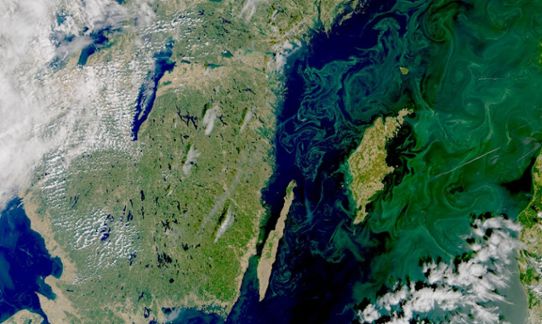Eutrophication has long been the single most important environmental problem for the Baltic Sea. In recent years, however, climate change has also grown to become one of the most significant manmade threats to the Baltic Sea environment. The question is how this affects remedial efforts for the marine environment.
“Our calculations show that the more we succeed in limiting climate change, the better the situation for the Baltic Sea and the marine environment,” explains Lars Arneborg, head of the oceanographic research group at SMHI. “Combined with reduced nutrient supply, it appears that we can even create better conditions for the Baltic Sea than what we have today.”

The importance of reduced nutrient supply
Over the last 50 years, the countries surrounding the Baltic Sea have invested considerable resources in reducing the nutrient supply from the land, including through more efficient agriculture, wetlands and improved wastewater treatment. However, more needs to be done in order to meet the joint emission targets of the Baltic Sea Action Plan (BSAP), a common action plan for the Baltic Sea environment adopted by these countries.
“We know that climate policy is of great importance,” says Bo Gustafsson, a researcher and Director of the Baltic Nest Institute at Stockholm University’s Baltic Sea Centre. “However, the results also show clearly that if we reduce nutrient discharges from the land in line with the BSAP levels, this will result in major improvements – regardless of the strength of future climate effects such as higher water temperatures and increased precipitation.”
The conclusions from this research have been presented in scientific articles and a report, and have now also been summarised in a policy brief on eutrophication in the Baltic Sea in a future climate.